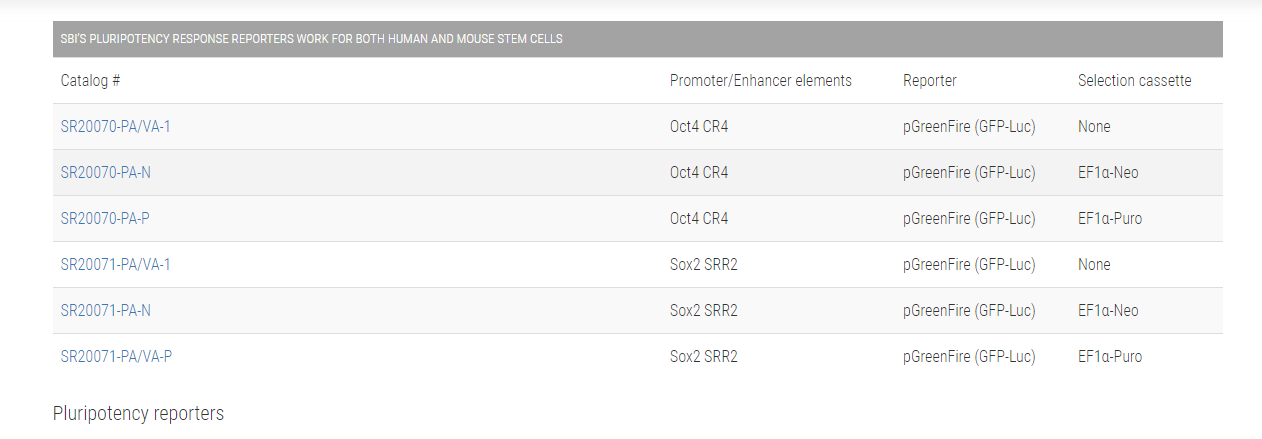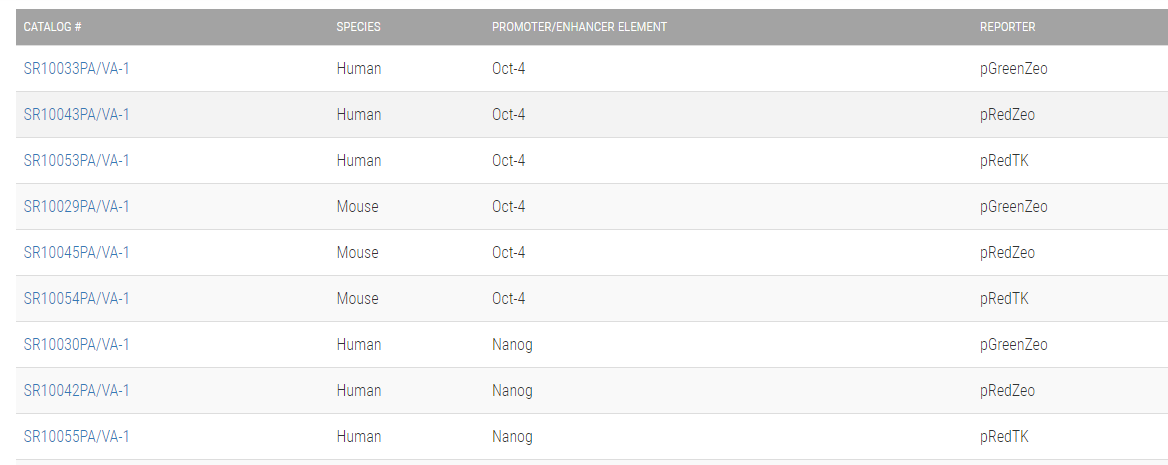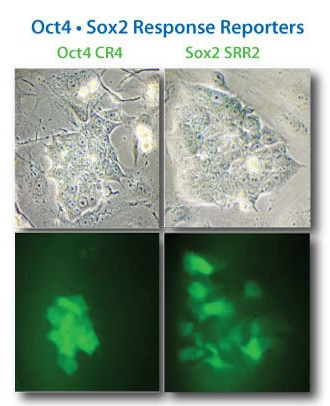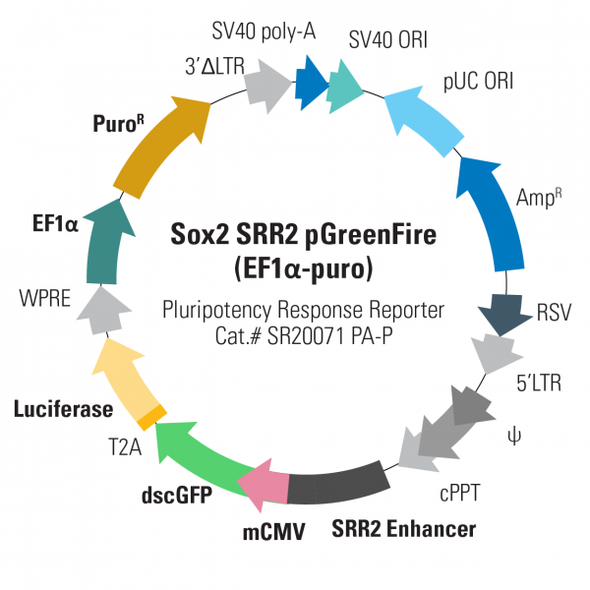System Biosciences
Sox2 SRR2-pGreenFire Response Reporter, pre-packaged virus
- SKU:
- SR20071-VA-1
- Availability:
- Usually Shipped in 5 Working Days
- Size:
- >2 x 10^6 IFUs
- Shipping Temperature:
- Dry Ice
Description
Sox2 SRR2-pGreenFire Response Reporter, pre-packaged virus. Cat# SR20071-VA. Supplier: SBI System Biosciences


Overview
With SBI’s line of pGreenFire Pluripotency Response Reporter Vectors, you can monitor and measure the expression of pluripotency markers in live cells in real time. These vectors leverage our reliable lentivector technology and save you time—the pre-built reporters come as ready-to-package lentivector plasmids with some reporters also available as ready-to-transduce, pre-packaged virus. All of our Response Reporters deliver great performance in both human and mouse cells.
The Sox2 SRR2 pGreenFire Response Reporter uses the Sox2 SSR2 enhancer with a minimal CMV promoter to co-express dscGFP (destabilized copGFP, 2-hour half-life) and luciferase. Co-expression is mediated by a T2 element. The minimal CMV promoter alone delivers negligible expression, but when downstream of SSR2 elements, drives expression of dscGFP and luciferase under the same conditions where Sox2 is expressed. The result is the ability to quantitatively measure Sox2 expression by fluorescence and luciferase activity.
To streamline cell line construction, we also offer this vector with a constitutively expressed neomycin marker (Cat.# SR20071-PA-N) or puromycin marker (Cat.# SR20071-PA-P).
- Create stable cell lines for quantitation of Sox2 activity
- Track differentiation in live cells in real time



Supporting Data
















